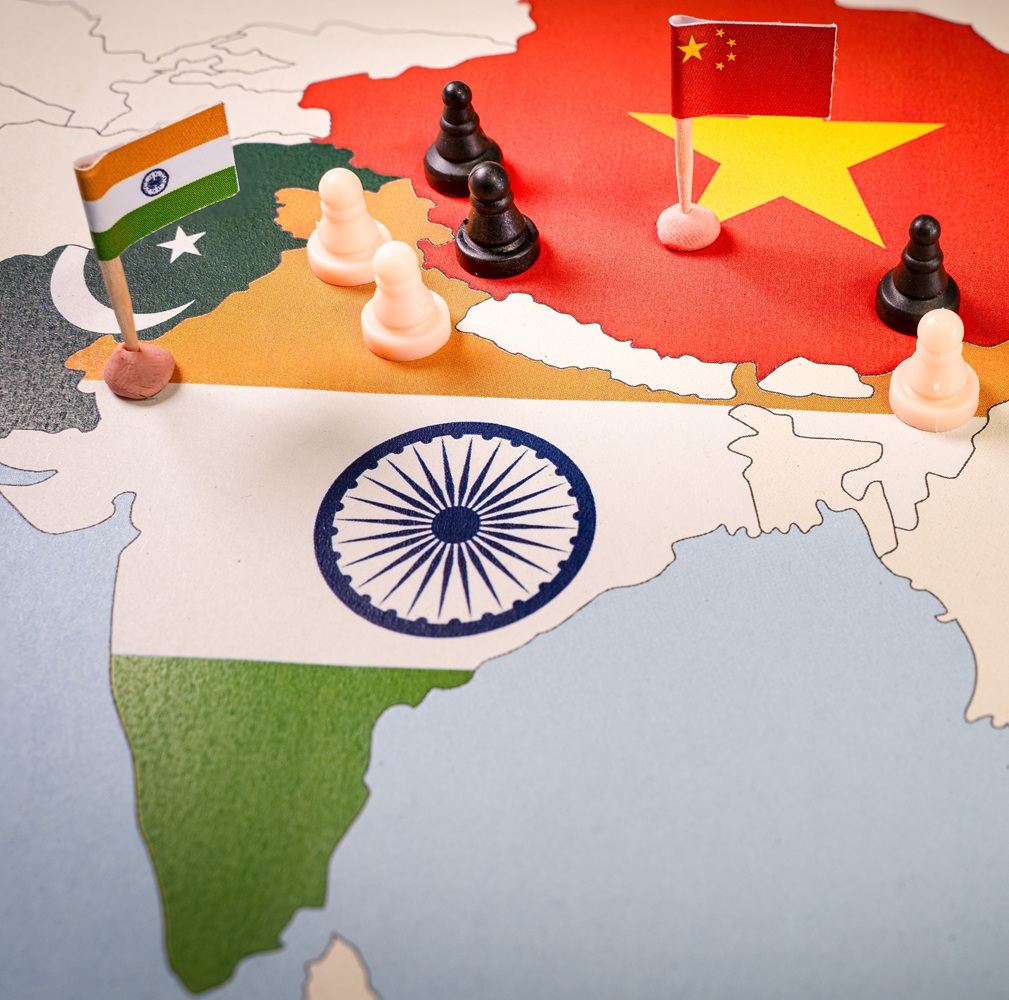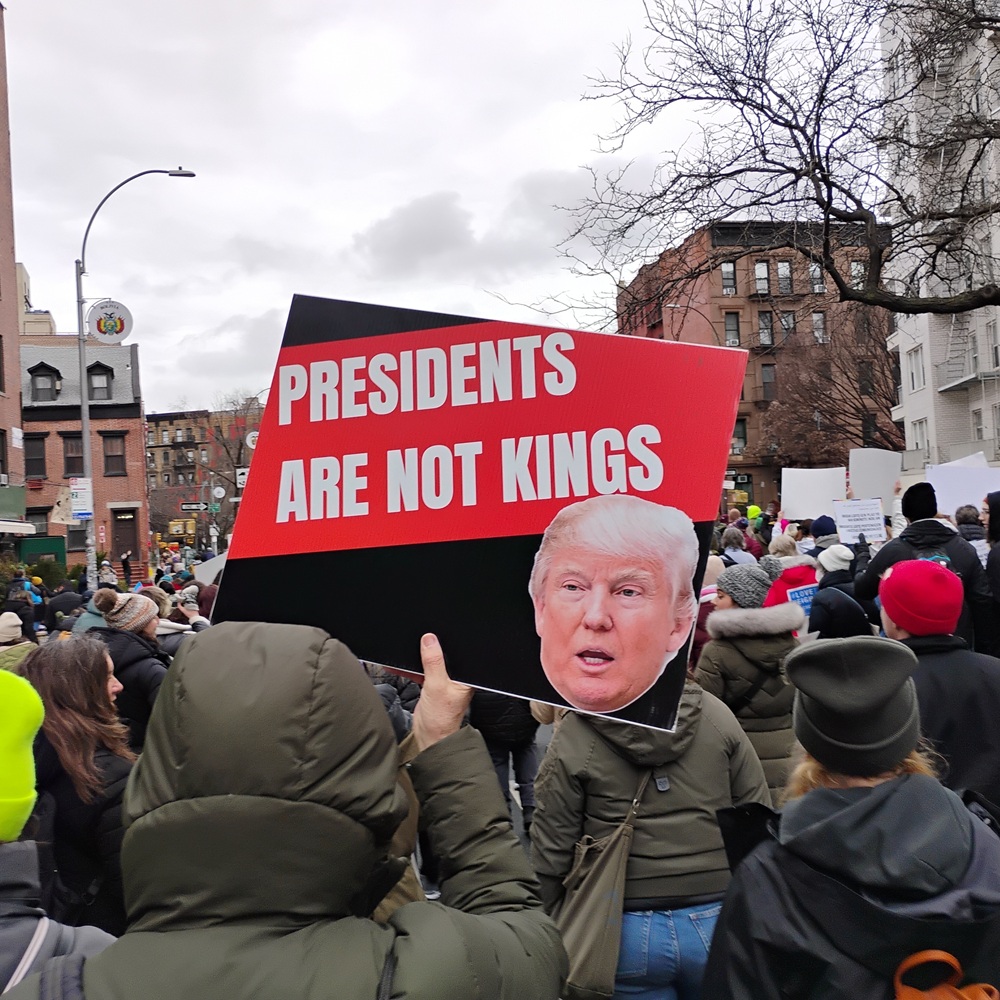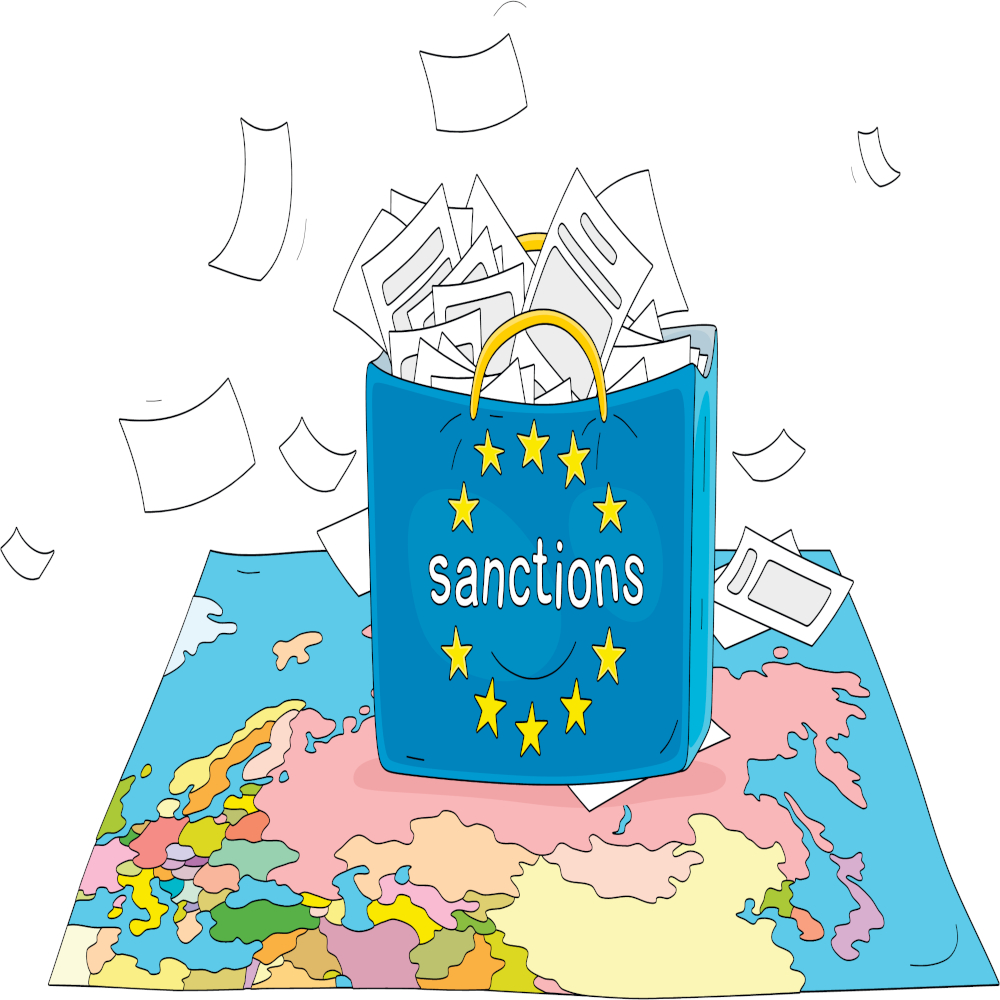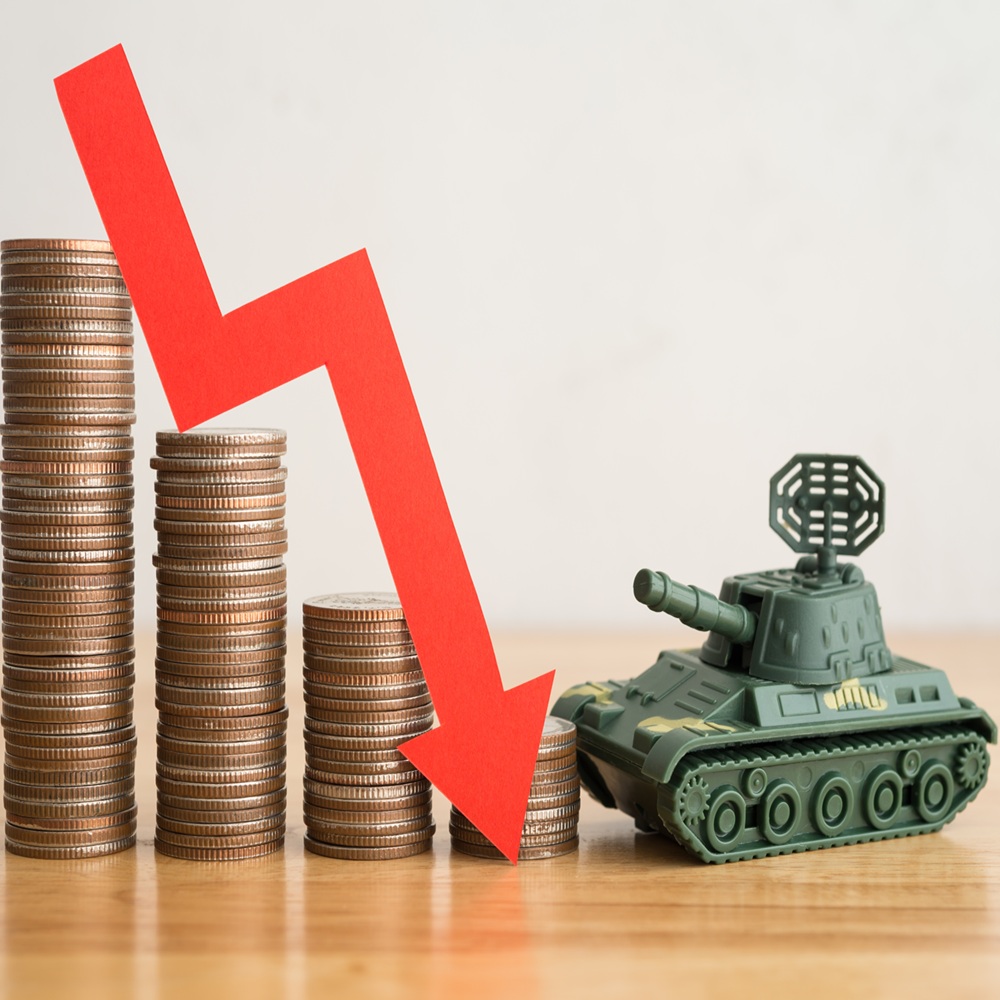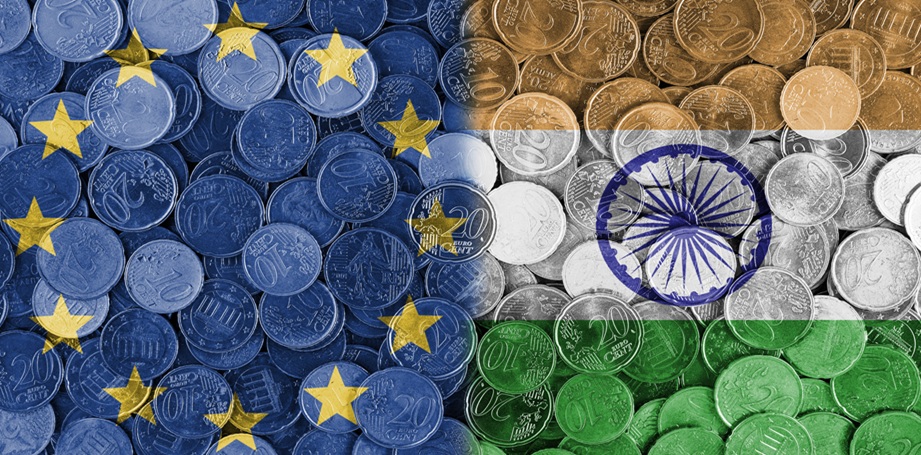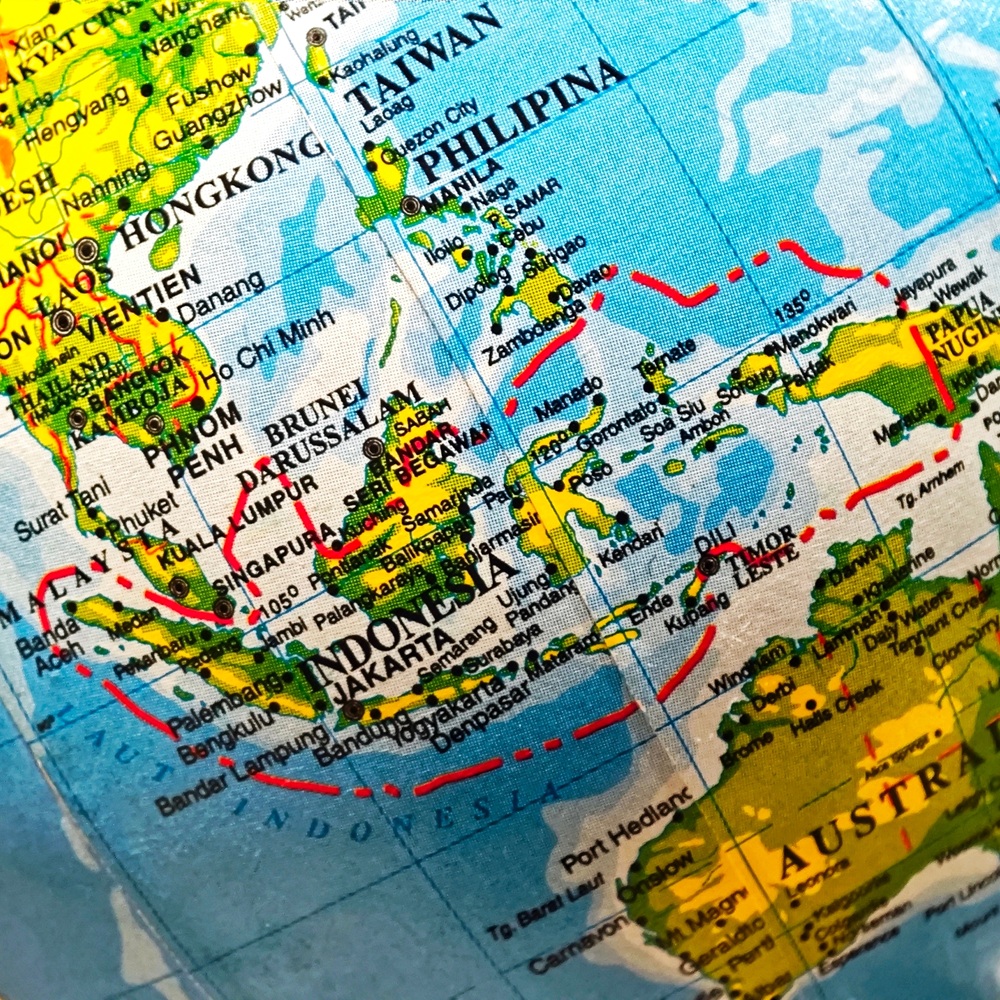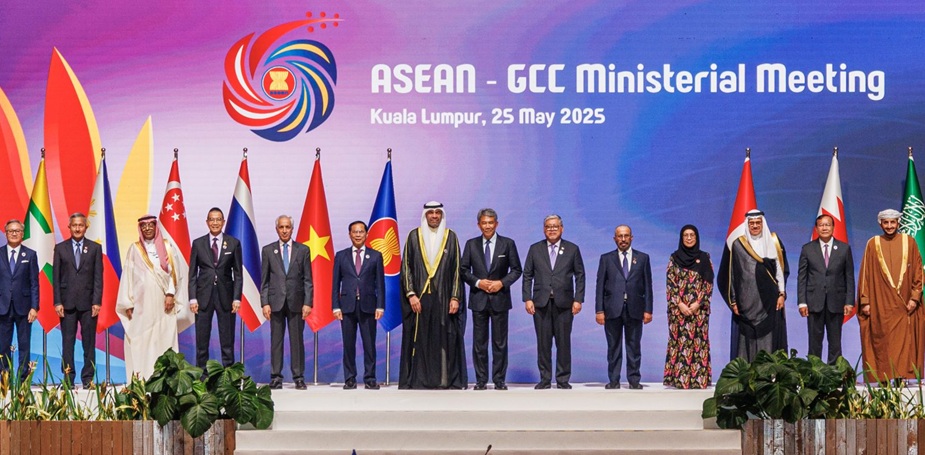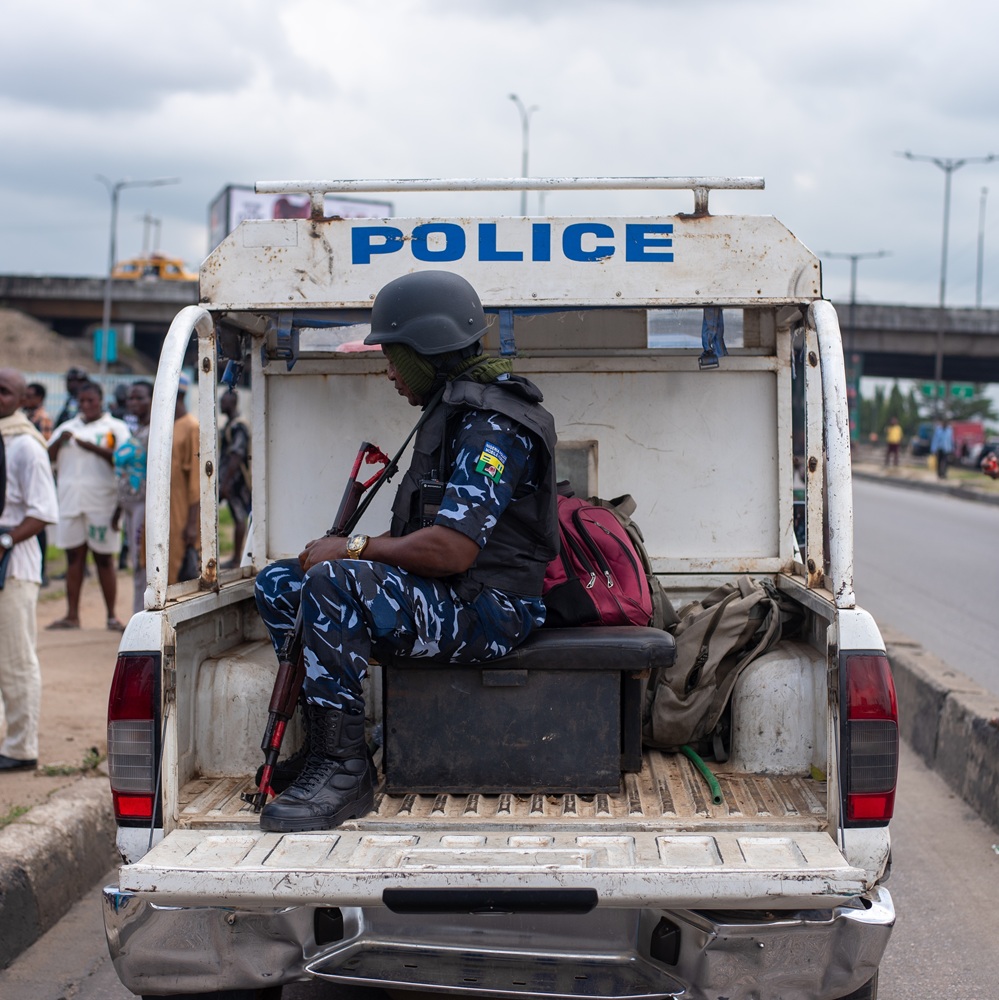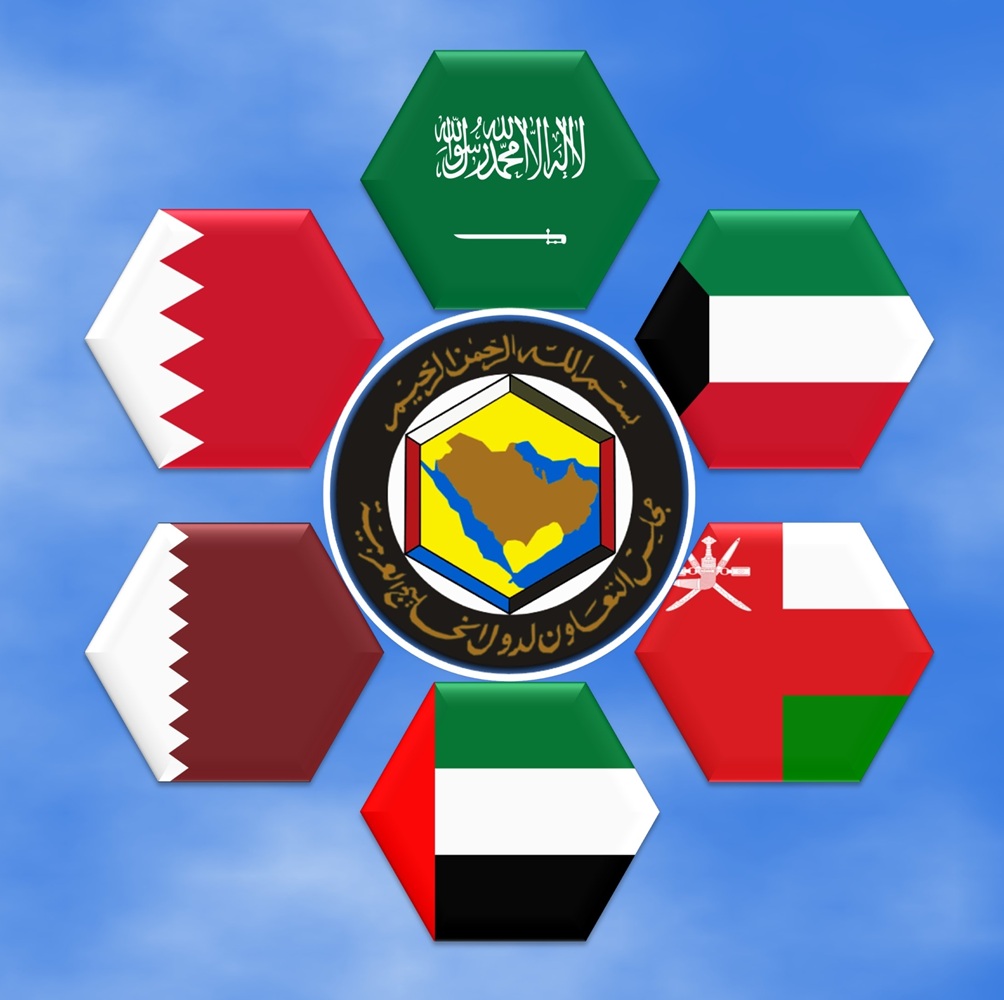
Strategic Ambiguity or Strategic Clarity: China’s Rise and US Policy Towards the Taiwan Issue
by T.Y. Wang
한국어로 읽기 Leer en español In Deutsch lesen Gap اقرأ بالعربية Lire en français Читать на русском Abstract Observers have noted that Washington’s policy of ‘strategic ambiguity’ aims not only to deter China from attacking Taiwan but also to keep Taipei from taking actions that may be deemed provocative by Beijing leaders. Remarks and actions taken by former United States President Joseph Biden seem to place America’s long-held ambiguous policy in doubt. It has been argued that a clear security commitment from Washington is likely to bolster Taiwan citizens’ unrealistic expectations of America’s defence support and their calls for independence, which will certainly invite Beijing’s violent responses. Employing the theory of deterrence and survey data collected in Taiwan during the past 20 years, this article examines this argument. The analysis shows that the policy of strategy ambiguity remains crucial for the peace and stability across the Taiwan Strait. As China has increasingly turned itself to become a revisionist, Washington’s policy requires a recalibration, and the adjustment does not have to be a binary choice between ambiguity and clarity. Donald Trump’s return to the White House with his transactional approach to international affairs makes US policy towards the Taiwan issue less predictable, potentially leading to a volatile Taiwan Strait during his second term. Introduction One of the key aspects of US policy towards Taiwan since 1979 has been its ambiguous posture. With an objective of maintaining cross-strait peace and stability, Washington’s policy is based on its version of the ‘one-China’ policy, the Taiwan Relations Act (TRA), the three United States–China communiques and ‘Six Assurances’ (Congressional Research Service, 2024). Under this framework, Washington acknowledges that there is only one China and maintains an unofficial relationship with Taipei. The United States supports Taiwan with weapons of a defensive character and will ‘resist any resort to force or other forms of coercion that would jeopardise the security, or the social or economic system, of the people on Taiwan’ (TRA, Section 2(6)) but it does not clarify what would trigger an American military response. The deliberate uncertainty about whether the United States would intervene in cross-strait conflicts distinctively characterises Washington’s policy of strategic ambiguity. Former United States President Joseph Biden’s repeated security pledges to Taiwan since taking office in 2021 seem to place this policy in doubt. Biden’s response to a reporter of CBS 60-Minutes was unequivocal. When being asked, ‘So unlike Ukraine, to be clear, sir, US forces—US men and women—would defend Taiwan in the event of a Chinese invasion?’ Without hesitation, Biden replied, ‘Yes, if in fact, there was an unprecedented attack’ (Pelley, 2022). Although White House officials later repeatedly indicated that America’s policy towards Taiwan had not changed, Biden’s remarks generated a new round of discussion (e.g., Benson, 2022; Christensen et al., 2022) since this was the fourth time that the President made such a pledge.1 Critics point out that Washington’s deliberate ambiguity about America’s military intervention is not merely designed to deter China from attacking Taiwan. By intentionally being vague on its defence commitment, the policy also intends to keep Taipei from taking actions that may be deemed provocative by Beijing leaders (Bush, 2006). Survey data have consistently shown that few on the island are willing to be ruled by the Chinese Communist government and the majority would opt for independence if a war with China can be avoided (Hsieh & Niou, 2005; Wang, 2017). An unconditional security guarantee from Washington is likely to bolster Taiwan citizens’ unrealistic expectations of America’s defence support and their calls for independence. Because Taiwan is a democracy, the popularly elected Taipei government could take aggressive actions under public pressure, which will certainly invite Beijing’s military attacks and drag the United States into an unwanted war with China. Employing the theory of deterrence and survey data collected in Taiwan during the past 20 years, this article attempts to examine this logic with the following research questions: What is the logic behind Washington’s policy of strategic ambiguity? Why is there a call for clarity in the first place? And, what are the concerns about a policy of clarity? What would Donald Trump’s second term as the President of the United States mean for Washington’s policy on Taiwan? The Functioning of Strategic Ambiguity Fierce fighting broke out between troops led by the Nationalist Party (Kuomintang or KMT) and the Chinese Communist Party (CCP) on the Chinese mainland at the end of the Second World War. Under the weight of corruption, the KMT government suffered a disastrous military defeat and retreated to the island of Taiwan. As geopolitical tension mounted, Washington signed a mutual defence treaty with Taipei to contain the expansion of Communism. Several major battles were fought in the 1950s and 1960s across the Taiwan Strait. With America’s assistance, Taipei thwarted Communist military attacks on offshore islands held by Taiwan. The 1970s saw a shift in China’s strategy away from a reliance on the ‘military liberation’ of the island to a wave of ‘peaceful initiatives’ for China’s unification. However, Chinese leaders continue to regard Taiwan as a renegade province and have refused to recognise it as an equal and legitimate negotiating partner. Attempting to coerce Taipei into acceptance of the unification formula known as ‘one country, two systems’, Beijing has repeatedly warned that it would use ‘any means it deems necessary, including military ones’ (State Council of the PRC, 1993). Taipei’s loss of United Nations (UN) membership in 1971 and the normalisation of relations between China and the United States in 1972 signified Beijing’s decisive diplomatic victory. China’s growing importance in international affairs has led many countries, including the United States, to break diplomatic relations with Taiwan. After the United States and China established official ties in 1979, Washington has maintained an ‘unofficial’ relationship with Taipei. With an aim to maintain cross-strait peace and stability, the policy of strategic ambiguity was gradually articulated in the subsequent years and has become America’s key policy towards the Taiwan issue. In essence, strategic ambiguity is a policy of deterrence aiming to prevent a target state from taking unwanted actions. The deterrent effect is accomplished by the deterring state’s threat of taking actions that will potentially deny the target state’s expected gains or punish it to the extent that the costs of the unwanted acts exceed the gains it hopes to acquire. In order to be effective, the deterring state needs to show that it (a) possesses sufficient retaliatory capability to deny the fruits of unwanted actions; and (b) has the resolve to use the force so that the target state is persuaded that the threats are credible (Chan, 2003; Christensen, 2002; Wang, 2010). As the world’s only superpower, few countries can withstand the weight of American power if it were deployed against them. Washington has also demonstrated that it has the resolve to use force, as the 1995–1996 Taiwan Strait Crisis has shown. Triggered by Beijing’s military exercises and missile tests aiming to intimidate Taiwan voters on the eve of the island country’s first popular presidential election, the Clinton administration responded by dispatching two aircraft carrier battle groups to the vicinity of Taiwan. Although some may question Washington’s resolve due to the perceived decline of American power, wars in Iraq and in Afghanistan still serve as reminders of its resolve of deploying military might. Previous literature has demonstrated that credible threat is not sufficient to deter unwanted behaviour, as an effective deterrence also needs convincing assurance (Christensen, 2002; Christensen et al., 2022; Schelling, 1966). The target state will have little incentive to comply with the deterring state’s demand if it believes that it will ultimately lose its principal values. This is why various United States administrations have repeatedly assured Chinese leaders that Washington does not support Taiwan independence lest Beijing use force to realise its cause of unification for fear of Taiwan’s permanent separation from China. The flip side of this logic is to remind Taipei that America’s security commitment is not without conditions. The goal is to discourage Taiwan from taking aggressive actions towards independence, which will certainly provoke military attacks from China. Thus, the potential of taking actions to impose costs that outweigh the benefits of an unwanted action is a form of deterrence. The prospect of inaction can also exert a deterrent effect as it can raise the expected cost of unwanted acts of the target state. Washington’s ambiguous posture is said to have the effect of ‘dual deterrence’ (Bush, 2006). On the one hand, it deters Beijing from using military force against Taiwan since Chinese leaders are unsure if Washington would be involved militarily. On the other hand, it dissuades Taipei from pursuing de jure independence so that cross-strait military conflicts can be avoided. Through a web of incentives and disincentives, Washington’s strategic ambiguity has been praised as one of the most successful foreign policies as it has maintained cross-strait peace and stability for several decades. Why the Call for Clarity? If Washington’s policy has been effective, why are there calls for change? The answer lies in China’s revisionist behaviours, which have become increasingly assertive and aggressive. Indeed, deterrence diplomacy is effective only when targeted actors are conditional revisionists. Christensen (2002) provides a useful typology of different political actors for analysis. Countries like Japan, France and the United Kingdom (UK) are ‘unprovokable friends’ of the United States. They may be annoyed with Washington’s policies from time to time, like France’s fury over a submarine deal after Australia cancelling a multi-billion-dollar order with a French company and turning to the United States and the UK for a new contract (Sanger, 2021). The governments of these countries have no intention to challenge America’s fundamental national interests. Nor does Washington see them as potential threats. While deterrence diplomacy is not needed for unprovokable friends, there are also ‘undeterrable ideologues’ to whom the threat of deterrence is futile. Political actors like Hitler’s Germany and Osama bin Laden’s Al-Qaeda network are determined to pursue their political objectives and simply cannot be dissuaded. In addition to unprovokable friends and undeterrable ideologues, there is a third type of political actor—‘conditional revisionists’. They are willing to exploit opponents’ weaknesses in order to change the status quo but would refrain from taking action unless opportunities arise. Because the deterring state can hold the target state’s prized possessions hostage while at the same time provide convincing assurance, the latter has the incentive to comply with the former’s demands. This logic underlies the success of strategic ambiguity because, for much of the time since 1979, China did not possess the capabilities to directly or indirectly coerce Taiwan or challenge America’s deterrence policy. The world has witnessed a different China since the end of the twentieth century as the country has experienced rapid economic expansion. Figure 1 shows that China’s annual GDP growth rates between 1981 and 2023 generally ranged from 7.5% to 10%. With its enormous economic resources, Beijing has launched an effort to modernise its military. During the 20-year period between 1989 and 2010, as Figure 2 demonstrates, China’s military expenditures as a percentage of government spending were between 7% and 17%, far exceeding those of Japan, France and the UK. In addition to acquiring new weapon systems, the People’s Liberation Army has also developed anti-access area denial capabilities, raising concerns among American officials (Maizland, 2020; Olay, 2024). Such capabilities aim to neutralise the United States and its allies’ ability to project power in the Western Pacific region, including in the area close to Taiwan. Beijing, in recent years, has aggressively expanded its military presence in the South China Sea (Centre for Preventive Action, 2022), engaged in border disputes with India, and constructed military outposts in Bhutan (Barnett, 2021). China has also built numerous ‘re-education camps’ in Xinjiang, engaged in ‘serious’ human rights violations against Uyghurs and other Muslim minorities in the region (UN Human Rights Office of the High Commissioner, 2022) and imposed repressive responses to the pro-democracy movement in Hong Kong (Wang, 2023). With Beijing’s continuing alignment with Moscow after Russia’s invasion of Ukraine, Chinese leaders have shown to the world that they are willing to defy international opinions and forcefully assert their growing power inside and beyond China’s boundaries. Figure 1. China’s GDP Growth Rate: 1961–2023.Source: World Bank Group (various years-a). Figure 2. Military Expenditure by Country as a Percentage of Government Spending: 1989–2023.Source: SIPRI (various years). In this context, aggregated national power has increasingly shifted to Beijing’s favour over the past decades. Figures 3 and 4 juxtapose Taiwan’s and China’s gross domestic product and total military expenditures since the late 1980s. Prior to 2000, as Figure 3 shows, China’s annual GDPs were only two to four times larger than Taiwan’s, but the ratio has expanded to more than 10 times since 2008. By 2010, China overtook Japan to become the world’s second largest economy, far exceeding Taiwan’s economic productivity. Meanwhile, China’s military spending has been 10–20 times that of Taiwan’s since 2009, as Figure 4 demonstrates. After Chinese leaders invalidated their promises of a ‘high-degree of autonomy’ to Hong Kong under the unification plan, observers believe Taiwan is their next target (Lopez, 2022). Since Tsai Ing-wen of the pro-independence Democratic Progressive Party (DPP) was elected Taiwan’s president in 2016, Beijing has furthered its effort of isolating Taipei internationally and escalated its belligerent behaviours by repeatedly dispatching naval vessels and warplanes circulating the island and violating its Air Defence Identification Zone (ADIZ; refer to Ministry of National Defence R.O.C., various years). In recent years, Chinese leaders further heightened their military pressure by repeatedly launched live-fire drills in water close to Taiwan, frequently with a record number of military aircraft and naval vessels (Ng & Wingfield-Hayes, 2024). China’s rapid technological advancement also allows it to infiltrate Taiwan’s IT infrastructure (Lonergan & Mueller, 2022). These developments have led to a warning from United States Navy Admiral John Aquilino in 2021 that China could be prepared to take Taiwan by force by 2027 (Lendon, 2021). Figure 3. Ratio of China and Taiwan Gross Domestic Productivity: 1991–2023.Source: World Bank Group (various years-b) and National Statistics, R.O.C. (Taiwan) (various years). Figure 4. Ratio of China and Taiwan Military Expenditures: 1989–2023.Source: SIPRI (various years). Observers, therefore, have noted that China is no longer a conditional revisionist but has turned into a revisionist that has the ability and intention to change the status quo. Some in the United States argue that ambiguity is unlikely to deter an increasingly assertive and threatening China towards Taiwan. Instead, they maintain, ‘[t]he time has come for the United States to introduce a policy of strategic clarity: one that makes explicit that the United States would respond to any Chinese use of force against Taiwan’ (Haass & Sacks, 2020). This is a view that the Biden administration also holds. Characterising China as a revisionist with both the intent and the ability ‘to reshape the international order’, the Biden administration acknowledged that China is the greatest challenger to the United States and its allies (White House, 2022, p. 23). Because ‘we cannot rely on Beijing to change its trajectory’, it is upon Washington to ‘shape the strategic environment around Beijing’ (Blinken, 2022). Thus, supporting Taiwan and strengthening its defence capabilities are crucial for America’s response to China’s growing coercion. Observers also point out that Washington’s ambiguous posture, while aiming to discourage unwanted actions of targeted states, may lead to miscalculation and risky behaviours. Leaders in both Beijing and Taipei have ‘obvious incentives to misrepresent their true perceptions concerning United States resolve’ (Kastner, 2006, p. 662). The tendency is particularly strong for Chinese leaders as the equation that previously made ambiguity a feasible policy has changed. Rather than maintain stability, it is argued, ambiguity may contribute to cross-strait instability and drag the United States into an unwanted conflict with China. In addition, no response to a Chinese military invasion of a democratic Taiwan would damage Washington’s reputation as the guardian of democracy and create the perception that the United States is not a reliable partner (Schmitt and Mazza, 2020). If American allies in the region conclude that Washington can no longer be counted on, they would be likely to accommodate Beijing’s demands as a result. Alternatively, some in the region may band together to balance a rising China, leading to tension and instability in one of the most dynamic areas of international commerce. Both would threaten America’s interests in the region and hurt Washington’s global leadership. Beijing’s forceful takeover of Taiwan would mean that China could then project its naval power beyond the first island chain, directly threatening the maritime security of the United States and its allies. Taiwan’s autonomy has also become a vital geopolitical interest and a national security issue for the United States due to the island’s dominant role in the semiconductor manufacturing market. It is estimated that the United States and other countries would lose access to 85% of all leading-edge microprocessors if China were to invade Taiwan tomorrow (Fadel, 2022). Beijing’s threatening military exercises, after United States House Speaker Nancy Pelosi’s visit to Taipei and the inauguration of pro-independence Lai Ching-te as Taiwan’s president, further underscore the need of revising the policy of strategic ambiguity. There have been a number of developments in the first Trump administration reflecting the growing sentiment that Beijing’s revisionist behaviour needs a robust and unambiguous response, including an unambiguous support for Taiwan. These included dispatching cabinet-level officials and military officers to Taipei and selling a large quantity of advanced weapons to Taiwan. The United States Congress also passed the Taiwan Travel Act of 2018 and the Taiwan Allies International Protection and Enhancement Initiative (TAIPEI) of 2020. The former permits high-level United States officials to travel to Taipei and meet their Taiwanese counterparts, while the latter aims to assist Taiwan in maintaining existing diplomatic relations. After Biden took office in 2021, his administration has further pursued a coherent and comprehensive approach for ‘broadening and deepening’ United States–Taiwan relations. It includes inviting Taiwan’s de factor ambassador to the United States as an official guest to the presidential inauguration (Blanchard, 2021), dispatching a delegation to Taipei sending a ‘personal signal’ of support from the President (Brunnstrom & Martina, 2021), providing large packages of arms sales (Chung et al., 2024), strengthening bilateral economic ties, and re-confirming Taiwan’s status as a major non-NATO ally (US Government Publishing Office, 2022). All of these efforts aim to advance the island country’s security, prosperity and respect in the international community. The Biden administration’s efforts to internationalise the Taiwan issue have been further noted. Wording like ‘the importance of peace and stability across the Taiwan Strait’ was mentioned at the United States–Japan (White House, 2021b), United States–Korea (White House, 2021a), Japan–Australia (Prime Minister of Australia, 2022) and G7 summits (European Council, 2021). For the first time, the issue of Taiwan’s security has been included in the communique of so many major powers’ summit meetings, which shows the Biden administration’s effort of building an international coalition to constrain a threatening China that will benefit Taiwan. In this context, Biden has repeatedly vowed to defend Taiwan, indicating that the United States would intervene militarily in the event of a Chinese invasion, prompting many to speculate if Washington has changed its long-standing policy of strategic ambiguity. Issues with Clarity Critics point out that a policy of strategic clarity involves risks. Chief among those is a clear security pledge like the one given by Biden, which is likely to bolster Taiwan citizens’ unrealistic expectation of America’s defence support, which will then motivate the public’s calls for independence. Under public pressure, the popularly elected Taipei government could take aggressive actions and will provoke a violent reaction from Beijing. Meanwhile, the public’s overconfidence does not match America’s military actions that would support an ally or a friend (Benson, 2022). The Biden administration’s decision to provide Ukraine with security assistance but refrain from putting American boots on the ground clearly demonstrates Washington’s reluctance to undertake direct military intervention in overseas conflicts. Taiwan citizens’ impracticable confidence in the United States’ defence commitment may destabilise the cross-strait relationship and bring harm to the island country. Thus, some pundits consider Biden’s move towards a policy of clarity ‘reckless’ (e.g., Beinart, 2021). The above concern is a valid one. Figure 5 presents the trend of public preferences on Taiwan’s international status during the past two decades. The top two dashed lines show that roughly 15%–35% of Taiwanese citizens prefer the status quo indefinitely, and about one-third of them are ‘undetermined’ regarding the island’s future status in the international community. The middle two solid lines show that there is a small but increasing proportion of respondents prefer to keep the status quo now but move towards independence in the future, and that proportion has increased quite dramatically since 2018. An even smaller and declining proportion of them favour unification as a final goal. The bottom two dashed lines indicate that less than 10% of the island’s residents want to pursue immediate unification or independence. Taken together, the figure demonstrates that very few on the island want to be ruled by the Chinese Communist government as it is now. The vast majority of them want to maintain the status quo and prefer either a ‘kinder, gentler’ version of de facto independence, that is, maintaining status quo forever, or a permanent separation from China in the future. Figure 5. Taiwan Citizens’ Position on Independence and Unification: 1994–2024.Source: Election Study Center, National Chengchi University (January 13, 2025). While Taiwan’s citizens prefer to preserve their democratic way of life, they understand the pursuit of independence will encounter violent reaction from China. Figure 6 shows that the majority of the public express a preference for de jure independence if cross-strait conflicts could be averted, but support for independence declines substantially if they believe that Beijing would launch an attack on Taiwan.2 Figure 7 also shows that 50%–60% of island citizens consistently believe that the United States will come to Taiwan’s defence if China launches an attack. The level of confidence is particularly high among supporters of the ruling DPP, which has a plank of pursuing Taiwan’s de jure independence. The above figures reveal that the public’s preferences over the island’s future relations with China are consistently conditioned by perceived risks. That is, they will refrain from declaring Taiwan’s independence if it involves such high risks as warring with China. The conditionality of Taiwanese citizens’ preferences indicates that, collectively, they are conditional revisionists; that is, they would refrain from taking actions unless opportunities arise. In addition, the public is highly confident that the United States will come to Taiwan’s aid if there is a cross-strait military conflict. Thus, strategic clarity is likely to further bolster Taiwan citizens’ unrealistic expectation of Washington’s security commitment as well as their support for policies that may be deemed provocative by Beijing leaders. Figure 6. Support Independence With/Without War With China, 2003–2024.Source: Program in Asian Security Studies (Various years). Figure 7. Taiwan Citizens’ Confidence in United States Security Commitment: 2003–2020.Source: Program in Asian Security Studies (Various years). The above findings appear to validate the concerns of proponents of strategic ambiguity, but a recent study with panel data collected on the island may alleviate such a concern (Wang & Cheng, 2023). Contrary to our expectations, Taiwanese citizens’ confidence in Washington’s security commitment has not increased but, in fact, decreased after Biden’s security pledges. The decline in confidence was mainly due to the pro-independence respondents’ shifting views. As noted, supporters of Taiwan independence historically have a higher level of confidence in America’s security commitment, which is cognitively consistent with their determination of pursuing the island country’s permanent separation from China. The war in Ukraine may be an awakening call for them as it demonstrates the Western hesitancy to undertake direct military intervention in overseas conflicts. The United States can have similar avoidance in a situation involving Taiwan. Despite Biden’s verbal assurance, actions speak louder than words. Pro-independence citizens’ shifting attitudes thus explain the declining confidence in Washington’s security commitment, which can also soften their calls for aggressive actions towards independence. Because panel analysis has long been considered one of the best ways of examining persistence and change of individuals’ attitudes, the results of the study are worth noting. Another identified pitfall of strategic clarity is that it signals what one ‘is prepared to take a risk for’ and ‘what one would ignore’ (Chang-Liao & Fang, 2021, p. 51). Given the heavy costs and uncertain outcomes, Chinese leaders are likely to avoid launching direct military attacks on Taiwan. Instead, they have employed and may continue to employ such ‘grey zone’ tactics as imposing economic sanctions on Taiwanese products, attacking the island’s information technology infrastructure, violating the island’s ADIZ and conducting military exercises for a de facto blockade. Without embarking on a conventional invasion of Taiwan that a policy of clarity intends to deter, these ‘low-intensity’ tactics can nonetheless have the effect of exhausting Taipei’s resources and eroding its resolve. Rather than discouraging Beijing’s aggressive and threatening behaviours, strategic clarity could undercut the effect of Washington’s deterrence policy. Such a criticism is also a legitimate concern, but it ignores the fact that Beijing embarked on grey zone approaches against Taiwan long before recent calls for clarity. This means that without setting a clear threshold for intervention has not stopped Chinese leaders from taking low-intensity provocations. China’s increasing clout and the perceived decline of America’s relative power seem to be the underlying factors to Beijing’s aggressive behaviour. Chinese leaders are apparently counting on Washington being ‘reactive and risk-averse’ (Sussex & Moloney, 2021). It will be incumbent on the United States to show its determination to confront China with coordinated responses. America’s policy of strategic ambiguity, therefore, remains crucial for cross-strait peace and stability, but it needs to be recalibrated. As China increasingly turns out to be a revisionist power, it is necessary for Washington to adjust its ambiguous posture in order to counter Beijing’s increasingly belligerent behaviour. The recalibration does not have to be a binary choice between ambiguity and clarity. Both policies can be treated as two ends of a continuum and can be adjusted accordingly. Given Beijing’s intense pressure campaign, Washington can step up its commitment to help Taiwan to defend itself for protecting democracy and America’s national interests. These measures include the development of a ‘porcupine’ defence strategy by enhancing Taipei’s asymmetric warfare capability, building military stockpile and forming an effective civil defence. Washington can also expand Taiwan’s integration with the international community lest Beijing employ its grey zone tactics to further isolate Taipei and deepen the island’s economic vulnerability. Ultimately, a successful deterrence policy will also depend on Washington’s convincing assurance that it would not support Taiwan’s pursuit of independence. Chinese leaders have a deep suspicion that the United States has a covert attempt to undermine China’s unification with Taiwan. America’s recalibration of its policy of strategic ambiguity is likely to be interpreted as a confirmation of their suspicion. If Beijing leaders believe that America’s policy will lead to Taiwan’s permanent separation from China, they are unlikely to submit to Washington’s demands. Trump 2.0 Donald Trump’s 2025 return to the White House for a second term as the president of the United States has added uncertainty to the policy of strategic ambiguity. Observers have noted that Trump is sceptical of the value of friends and allies as well as the benefits of international partnerships and alliances (Bush & Haas, 2024). Under the slogan of ‘America First’, he removed the United States from the Trans-Pacific Partnership (Lobosco, 2018), the Paris Climate Accord (White House, 2017, 2025a), the Intermediate-Range Nuclear Forces (INF) Treaty (Pompeo, 2019) and the UN Human Rights Council (White House, 2025b) and has mandated a comprehensive review of all international organisations to determine if the United States should withdraw its membership from or end its support for these organisations (White House, 2025b). He repeatedly admonished members of NATO, South Korea and Japan for not paying enough for United States protection (Reuters, 2024). His contempt for alliances and security partnerships has upended decades of American international engagement. In this context, two developments have direct implications for Taiwan. First, Trump has expressively suggested that the United States acquire Greenland (Erlanger & Smialek, 2025), take control of the Panama Canal (New York Times, 2025), and annex Canada as the 51st state of the United States (Colvin, 2025). His ambition for territory expansion has alarmed the world community3 and undermines an international principle that borders should not be changed through force or coercion. Trump’s threat regarding Greenland, the Panama Canal and Canada could potentially embolden Chinese leaders to consider taking Taiwan by force (Sacks, 2025). Second, unlike Biden’s emphasis on the defence of democratic values in his support for American allies, Trump has taken a transactional approach to international affairs. His dealing with the Russo–Ukrainian conflict is a case in point. The Trump administration has placed heavy pressure on the Ukrainian government to sign over a huge portion of its mineral wealth to the United States in exchange for helping the country to defend itself (Taub, 2025). Some speculate that Trump’s alignment with Russia represents a strategy of ‘reverse Kissinger’ aiming to counter China’s rise (Editorial Board, 2025). Though such a strategy may potentially benefit Taiwan, many on the island are nevertheless alarmed by the Trump administration’s approach to the conflict, questioning if they can continue to count on American support (Buckley & Chien, 2025). Because Trump has expressed his desire to negotiate a broad economic deal with Beijing (Swanson, 2025), the Chinese government may offer concessions on a trade deal in exchange for Washington’s positions on Taiwan without Taipei’s involvement. Indeed, Trump has expressed scepticism about Taiwan’s value compared to China (Llorente, 2024). He previously also questioned America’s ability to defend the island country (Bolton, 2020). Even though the State Department recently removed the long-standing phrase that ‘[w]e do not support Taiwan independence’ from its Taiwan factsheet (US Department of State, 2021), leading some to speculate if it represents a strategic shift (Tao, 2025), Trump’s dubious attitude about the island country was fully displayed in a previous interview. Speaking in a transactional tone, Trump argued that ‘Taiwan should pay us for defence’ because ‘we’re no different than an insurance company. Taiwan doesn’t give us anything’. He also complained that Taiwan had taken ‘almost 100%’ of the chip industry from the United States (Kharpal, 2024). In response to Trump’s inimical demands, by displaying Taiwan’s tangible value to the United States, the Taipei government has pledged to increase its defence spending to 3% of Taiwan’s gross domestic product (Office of the President, Republic of China [Taiwan], 2025). The Taiwan Semiconductor Manufacturing Company (TSMC)—the world’s largest chip manufacturer that produces the most advanced semiconductors—also announced plans to invest an additional $100 billion to expand its operations in the United States (Tang & Price, 2025).4 While the investment announcement was viewed favourably by Trump (Chung & Lee, 2025), it may be interpreted by Chinese leaders as a lack of resolve on the part of his administration due to Trump’s scepticism and versatile mindset. Given that credible threat is key to deterrence policy, the future and effectiveness of strategic ambiguity in Trump’s second term will be uncertain.ConclusionThe Taiwan Strait has been described as ‘the most dangerous place on Earth’ (Economist, 2021). A military conflict between China and Taiwan will have significant consequences. In addition to causing damage and human suffering on both sides, such a conflict could escalate into a direct confrontation involving two nuclear powers, threaten regional stability in East Asia, and undermine the prosperity of one of the most dynamic regions in the global economy. Washington’s policy of strategic ambiguity has been effective in maintaining cross-strait peace and stability for several decades, but a recalibration is necessary due to an increasingly powerful and assertive China. Instead of changing to a policy of strategic clarity, the United States can adjust its ambiguous posture through strengthening Taiwan’s defence capabilities and advancing its international integration. By assuring that Washington seeks regional peace and stability, not Taiwan’s independence, the effects of the deterrence policy can be maintained, and risks of cross-strait military conflicts can be minimised. Trump’s return to the White House nevertheless has disrupted America’s traditional foreign policy of promoting freedom and democracy. Although he has not clarified the administration’s position on America’s support for Taiwan, his transactional approach suggests that he might use the cross-strait relationship as leverage over Beijing. Washington’s policy towards Taiwan is expected to be less predictable, potentially leading to a volatile Taiwan Strait during Trump’s second term. Declaration of Conflicting Interests The author declared no potential conflicts of interest with respect to the research, authorship and/or publication of this article.FundingThe author received no financial support for the research, authorship and/or publication of this article.Footnotes1. Biden previously provided such an assurance in May of 2022 (Kanno-Youngs & Baker, 2022), October of 2021 (Hunnicutt, 2021) and August of 2021 (ABC News, 2021). 2. The attempts to explore the conditionality of Taiwanese residents’ policy preferences include Hsieh and Niou (2005), Niou (2004) and Wu (1993, 1996). 3. There have been strong public reactions in Canada to Trump’s threats to make Canada the 51st state of the United States. Canadian Prime Minister Justin Trudeau also met with British King Charles III, the country’s head of state, to discuss the issue (Hui, 2025). 4. Without making a security commitment, Trump indicated that TSMC’s investment ‘will at least give us a position where we have, in this very, very important business, we would have a very big part of it in the United States’ (Tang & Price, 2025). References ABC News. (2021, August 19). Full transcript of ABC News’ George Stephanopoulos’ interview with President Joe Biden. Retrieved, 12 October 2021, from https://abcnews.go.com/Politics/full-transcript-abc-news-george-stephanopoulos-interview-president/story?id=79535643 Barnett R. (2021, May 7). China is building entire villages in another country’s territory. Foreign Policy. Retrieved, 9 May 2021, from https://foreignpolicy.com/2021/05/07/china-bhutan-border-villages-security-forces/ Beinart P. (2021, May 5). Biden’s Taiwan policy is truly, deeply reckless. The New York Times. Retrieved, 28 May 2021, from https://www.nytimes.com/2021/05/05/opinion/biden-taiwan-china.html Benson B. (2022, May 25). Why it makes sense for the US to not commit to defending Taiwan. The Washington Post. Retrieved, 25 May 2022, from https://www.washingtonpost.com/outlook/2022/05/25/biden-taiwan-strategic-ambiguity/ Blanchard B. (2021, January 20). Taiwan-Biden ties off to strong start with invite for top diplomat. Reuters. Retrieved, 10 March 2025, from https://www.reuters.com/article/world/asia-pacific/taiwan-biden-ties-off-to-strong-start-with-invite-for-top-diplomat-idUSKBN29Q01M/ Blinken A. J. (2022, May 26). The administration’s approach to the People’s Republic of China. US Department of State. Retrieved, 26 October 2022, from https://www.state.gov/the-administrations-approach-to-the-peoples-republic-of-china/ Bolton J. (2020, June 17). John Bolton: The scandal of Trump’s China policy. The Wall Street Journal. Retrieved, 4 March 2025, from https://www.wsj.com/articles/john-bolton-the-scandal-of-trumps-china-policy-11592419564 Brunnstrom D., & Martina M. (2021, April 13). Biden sends unofficial delegation to Taiwan in ‘personal signal’. Reuters. Retrieved, 28 May 2021, from https://www.reuters.com/world/china/biden-sends-unofficial-delegation-taiwan-underscore-commitment-white-house-2021-04-13/ Buckley C., & Chien A. C. (2025, February 25). Taiwan watches Trump undercut Ukraine, hoping it won’t be next. The New York Times. Retrieved, 25 February 2025, from https://www.nytimes.com/2025/02/25/world/asia/trump-ukraine-taiwan.html Bush R. (2006). The US policy of dual deterrence. In Tsang S. (Ed.), If China attacks Taiwan: Military strategy, politics and economics (pp. 35–53). Routledge. Bush R., & Haas R. (2024, October 3). How would the Trump or Harris administration approach Taiwan? Brookings. https://www.brookings.edu/articles/how-would-the-trump-or-harris-administration-approach-taiwan/ Centre for Preventive Action. (2022, May 4). Territorial disputes in the South China Sea. Global Conflict Tracker, Council on Foreign Relations. Retrieved, 10 September 2022, from https://www.cfr.org/global-conflict-tracker/conflict/territorial-disputes-south-china-sea Chan S. (2003). Extended deterrence in the Taiwan Strait: Learning from rationalist explanations in international relations. World Affairs, 166(2), 109–125. Chang-Liao N.-C., & Fang C. (2021). The case for maintaining strategic ambiguity in the Taiwan Strait. Washington Quarterly, 44(2), 45–60. Christensen T. J. (2002). The contemporary security dilemma: Deterring a Taiwan conflict. Washington Quarterly, 25(4), 7–21. Christensen T., Fravel T., Glaser B., Nathan A., & Weiss J. C. (2022). How to avoid a war over Taiwan: Threats, assurances, and effective deterrence. Foreign Affairs. Retrieved, 1 December 2022, from https://www.foreignaffairs.com/china/how-avoid-war-over-taiwan Chung Y.-C., & Lee H.-Y. (2025, March 8). Trump softens stance on Taiwan after TSMC’s $100b investment. Focus Taiwan. https://www.techinasia.com/news/trump-softens-stance-on-taiwan-after-tsmcs-100b-investment Chung Y.-C., Wu S.-W., & Huang F. (2024, November 30). US approves US$387 million arms sales to Taiwan. Focus Taiwan. Retrieved, 10 March 2025, from https://focustaiwan.tw/politics/202411300004 Colvin J. (2025, February 9). Trump says he is serious about Canada becoming 51st state in Super Bowl interview. Associated Press. Retrieved, 3 March 2025, from https://apnews.com/article/canada-gulf-america-super-bowl-bret-baier-musk-7e1959c7d430899b01629c800db6f17b Congressional Research Service. (2024, May 23). Taiwan: Background and US relations. In Focus. Retrieved, 9 November 2024, from https://crsreports.congress.gov/product/pdf/IF/IF10275 Economist. (2021, May 1). The most dangerous place on Earth. Retrieved, 16 May 2021, from https://www.economist.com/leaders/2021/05/01/the-mostdangerous-place-on-earth Editorial Board. (2025, March 11). What’s the strategy behind Trump’s pivot to Russia? Washington Post. Retrieved, 15 March 2025, from https://www.washingtonpost.com/opinions/2025/03/11/trump-russia-ukraine-reverse-kissinger/ Election Study Center, National Chengchi University. (January 13, 2025). Trends of core political attitudes. https://esc.nccu.edu.tw/PageDoc/Detail?fid=7801&id=6963 Erlanger S., & Smialek J. (2025, January 28). Trump alarms Denmark in an icy exchange over Greenland. New York Times. Retrieved, 9 March 2025, from https://www.nytimes.com/2025/01/26/world/europe/trump-greenland-denmark.html?searchResultPosition=3 European Council. (2021, June 13). Our shared agenda for global action to build back better. Carbis Bay G7 Summit Communiqué. Retrieved, 6 September 2021, from https://www.consilium.europa.eu/media/50361/carbis-bay-g7-summit-communique.pdf Fadel L. (2022, August 18). How the new CHIPS Act could ease supply constraints. National Public Radio. Retrieved, 19 August 2022, from https://www.npr.org/2022/08/18/1118094330/how-the-new-chips-act-could-ease-supply-constraints Haass R., & Sacks D. (2020, September 2). American support for Taiwan must be unambiguous. Foreign Affairs. Retrieved, 15 April 2021, from https://www.foreignaffairs.com/articles/united-states/american-support-taiwan-must-be-unambiguous Hsieh J. F.-S., & Niou E. M. S. (2005). Measuring Taiwanese public opinion on Taiwanese independence. The China Quarterly, 181(1), 158–168. Hui S. (2025, March 3). King Charles III welcomes Canada’s Trudeau for talks overshadowed by Trump’s annexation comments. Associated Press. Retrieved, 4 March 2025, from https://apnews.com/article/king-charles-trudeau-canada-trump-a475587880917f210c8aa40d252e790d Hunnicutt T. (2021, October 22). Biden says United States would come to Taiwan’s defense. Reuters. Retrieved, 16 January 2023, from https://www.reuters.com/world/asia-pacific/biden-says-united-states-would-come-taiwans-defense-2021-10-22/ Kanno-Youngs Z., & Baker P. (2022, May 23). Biden pledges to defend Taiwan if it faces a Chinese attack. The New York Times. Retrieved, 25 May 2022, from https://www.nytimes.com/2022/05/23/world/asia/biden-taiwan-china.html Kastner S. L. (2006). Ambiguity, economic interdependence, and the US strategic dilemma in the Taiwan Strait. Journal of Contemporary China, 15(49), 651–669. Kharpal A. (2024, July 18). Trump says Taiwan should pay the US for defense; shares of chip giant TSMC fall. CNBC. https://www.cnbc.com/2024/07/17/trump-says-taiwan-should-pay-the-us-for-defense-shares-of-tsmc-fall.html Lendon B. (2021, March 24). Chinese threat to Taiwan ‘closer to us than most think’, top US admiral says. CNN. Retrieved, 31 March 2021, from https://www.cnn.com/2021/03/24/asia/indo-pacific-commander-aquilino-hearing-taiwan-intl-hnk-ml/index.html Llorente V. (2024, July 16). The Donald Trump interview transcript. Bloomberg Businessweek. https://www.bloomberg.com/features/2024-trump-interview-transcript/?sref=rjdgzTGZ Lobosco K. (2018, December 29). Trump pulled out of a massive trade deal. Now 11 countries are going ahead without the US. CNN. Retrieved, 12 November 2024, from https://www.cnn.com/2018/12/29/politics/tpp-trade-trump/index.html Lonergan E., & Mueller G. B. (2022, August 15). What are the implications of the cyber dimension of the China-Taiwan crisis? Council on Foreign Relations. Retrieved, 6 September 2022, from https://www.cfr.org/blog/what-are-implications-cyber-dimension-china-taiwan-crisis Lopez G. (2022, March 20). Is Taiwan next? The New York Times. Retrieved, 11 April 2022, from https://www.nytimes.com/2022/03/20/briefing/taiwan-china-ukraine-russia.html Maizland L. (2020, February 5). China’s modernizing military. Council on Foreign Relations. Retrieved, 1 May 2021, from https://www.cfr.org/backgrounder/chinas-modernizing-military Ministry of National Defence R.O.C. (various years). Military news update. https://www.mnd.gov.tw/English/PublishTable.aspx?types=Military%20News%20Update&Title=News%20Channel National Statistics, R.O.C. (Taiwan). (various years). Macro database. Retrieved, 13 March 2025, from https://nstatdb.dgbas.gov.tw/dgbasAll/webMain.aspx?sys=100&funid=dgmaind New York Times. (2025, March 5). Full transcript of President Trump’s speech to Congress. Retrieved, 5 March 2025, from https://www.nytimes.com/2025/03/04/us/politics/transcript-trump-speech-congress.html Ng K., & Wingfield-Hayes R. (2024, October 22). China holds live-fire drills on island closest to Taiwan. BBC. Retrieved, 5 March 2025, from https://www.bbc.com/news/articles/c3rlrv1qewqo Niou E. M. S. (2004). Understanding Taiwan independence and its policy implications. Asian Survey, 44(4), 555–567. Office of the President, Republic of China (Taiwan). (2025, February 14). President Lai holds press conference following high-level national security meeting. Retrieved, 27 February 2025, from https://english.president.gov.tw/News/6908 Olay M. (2024, September 16). Threat from China increasing, Air Force official says. US Department of Defense. Retrieved, 2 March 2025, from https://www.defense.gov/News/News-Stories/Article/Article/3907669/threat-from-china-increasing-air-force-official-says/#:~:text=%22I’ve%20been%20closely%20watching,Air%20and%20Space%20Force%20personnel Pelley S. (2022, September 18). President Joe Biden: The 2022 60 Minutes interview. CBS 60-Minutes. Retrieved, 10 October 2022, from https://www.cbsnews.com/news/president-joe-biden-60-minutes-interview-transcript-2022-09-18/ Pompeo M. R. (2019, August 2). US withdrawal from the INF Treaty on August 2, 2019. US Department of State. Retrieved, 12 November 2024, from https://2017-2021.state.gov/u-s-withdrawal-from-the-inf-treaty-on-august-2-2019/ Prime Minister of Australia. (2022, October 22). Australia-Japan Leaders’ Meeting joint statement. Retrieved, 10 December 2023, from https://www.pm.gov.au/media/australia-japan-leadersmeeting-joint-statement Program in Asian Security Studies. (Various years). Taiwan National Security Survey. https://sites.duke.edu/tnss/ Reuters. (2024, November 6). Trump’s US election win may bring NATO members’ defense spending back into focus. https://www.reuters.com/world/trumps-us-election-win-may-bring-nato-members-defense-spending-back-into-focus-2024-11-06/ Sacks D. (2025, February 21). Trump is making Taiwan more vulnerable. Council on Foreign Relations. Retrieved, 27 February 2025, from https://www.cfr.org/blog/trump-making-taiwan-more-vulnerable Sanger D. (2021, October 29). Secret talks and a hidden agenda: Behind the US defense deal that France called a ‘betrayal’. New York Times. Retrieved, 4 September 2022, from https://www.nytimes.com/2021/09/17/us/politics/us-france-australia-betrayal.html Schelling T. (1966). Arms and influence. Yale University Press. Schmitt G., & Mazza M. (2020, September 17). The end of ‘strategic ambiguity’ regarding Taiwan. American Enterprise Institute. Retrieved, 16 June 2021, from https://www.aei.org/op-eds/the-end-of-strategic-ambiguity-regarding-taiwan/ SIPRI. (various years). SIPRI military expenditure database. Retrieved, 13 March 2025, from https://milex.sipri.org/sipri State Council of the PRC. (1993). The Taiwan question and reunification of China. Beijing Review, 36(36), 5–6. Sussex M., & Moloney C. (2021, July 6). How the US can recapture escalation control. Strategy Bridge. Retrieved, 6 September 2022, from https://thestrategybridge.org/the-bridge/2021/7/6/how-the-us-can-recapture-escalation-control?rq=escalation Swanson A. (2025, February 19). Trump eyes a bigger, better trade deal with China. New York Times. Retrieved, 4 March 2025, from https://www.nytimes.com/2025/02/19/business/economy/trump-china-trade-deal.html Tang D., & Price M. L. (2025, March 3). Giant chipmaker TSMC to spend $100B to expand chip manufacturing in US, Trump announces. Associated Press. Retrieved, 5 March 2025, from https://apnews.com/article/trump-tsmc-chip-manufacturing-tariffs-42980704ffca62e823182422ee4b7b83 Tao B. X. (2025, February 18). Did the US just change its Taiwan policy? The Diplomat. Retrieved, 6 March 2025, from https://thediplomat.com/2025/02/did-the-us-just-change-its-taiwan-policy/ Taub A. (2025, February 25). Trump’s Ukraine mineral deal is seen as ‘protection racket’ diplomacy. New York Times. Retrieved, 4 March 2025, from https://www.nytimes.com/2025/02/25/world/europe/trump-us-ukraine-mineral-deal.html?searchResultPosition=3 UN Human Rights Office of the High Commissioner. (2022, August 31). OHCHR assessment of human rights concerns in the Xinjiang Uyghur Autonomous Region, People’s Republic of China. United Nations. Retrieved, 10 September 2022, from https://www.ohchr.org/sites/default/files/documents/countries/2022-08-31/22-08-31-final-assesment.pdf US Department of State. (2021, January 20). Major non-NATO ally status [Fact sheet]. Retrieved, 18 September 2022, from https://www.state.gov/major-non-nato-ally-status/ US Government Publishing Office. (2022). Public Law 117-263—James M. Inhofe National Defense Authorization Act for Fiscal Year 2023. GovInfo. Retrieved, 10 March 2025, from https://www.govinfo.gov/content/pkg/PLAW-117publ263/pdf/PLAW-117publ263.pdf Wang T.Y. (2010). Cross-strait rapprochement and US policy toward the Taiwan issue. Issues & Studies, 46(3), 129–149. Wang T.Y. (2017). Taiwan citizens’ views on cross-strait relations: Pragmatic but ambivalent. In Cheng T. J., & Lee W.-C. (Eds.), National security, public opinion and regime asymmetry: A six country study (pp. 21–48). World Scientific. Wang T.Y. (Ed.). (2023). Hong Kong and the 2019 anti-extradition bill movement [Special issue]. Journal of Asian and African Studies, 58(1). https://doi.org/10.1177/00219096221124983 Wang T.Y., & Cheng S.-F. (2023). Strategic clarity and Taiwan citizens’ confidence in US security commitment. Asian Survey, 64(1), 54–78. White House. (2017, June 1). Statement by President Trump on the Paris Climate Accord. Retrieved, 12 November 2024, from https://trumpwhitehouse.archives.gov/briefings-statements/statement-president-trump-paris-climate-accord/ White House. (2021a, May 21). US-ROK leaders’ joint statement [Briefing room]. Retrieved, 6 September 2021, from https://www.whitehouse.gov/briefing-room/statements-releases/2021/05/21/u-s-rok-leaders-joint-statement/ White House. (2021b, April 16). US-Japan joint leaders’ statement: ‘US–Japan global partnership for a new era’ [Briefing room]. Retrieved, 10 December 2023, from https://www.whitehouse.gov/briefing-room/statements-releases/2021/04/16/u-s-japan-joint-leadersstatement-u-s-japan-global-partnership-for-a-new-era/ White House. (2022, October). National security strategy. Retrieved, 1 November 2022, from https://www.whitehouse.gov/wp-content/uploads/2022/10/Biden-Harris-Administrations-National-Security-Strategy-10.2022.pdf White House. (2025a, January 20). Putting America first in international environmental agreements. Federal Register. Retrieved, 4 March 2025, from https://www.federalregister.gov/documents/2025/01/30/2025-02010/putting-america-first-in-international-environmental-agreements White House. (2025b, February 5). Withdrawing the United States from and ending funding to certain United Nations organizations and reviewing United States support to all international organizations. Retrieved, 3 March 2025, from https://www.whitehouse.gov/presidential-actions/2025/02/withdrawing-the-united-states-from-and-ending-funding-to-certain-united-nations-organizations-and-reviewing-united-states-support-to-all-international-organizations/ World Bank Group. (various years-a). GDP per capita growth (annual %)–China. The World Bank. Retrieved, 13 March 2025, from https://data.worldbank.org/indicator/NY.GDP.PCAP.KD.ZG?locations=CN World Bank Group. (various years-b). GDP (current US$)–China. Retrieved, 13 March 2025, from https://data.worldbank.org/indicator/NY.GDP.MKTP.CD?locations=CN Wu N. (1993). National identity and party support: The social basis of party competition in Taiwan. Bulletin of the Institute of Ethnology, 74, 33–61. Wu N. (1996). Liberalism and ethnic identity: Searching for the ideological foundation of Taiwanese nationalism. Taiwanese Political Science Review, 1(1), 5–40









